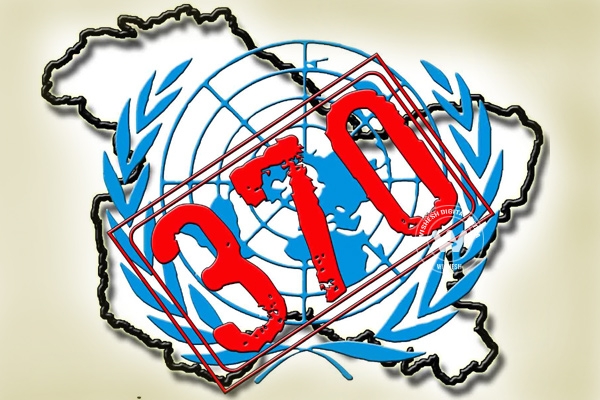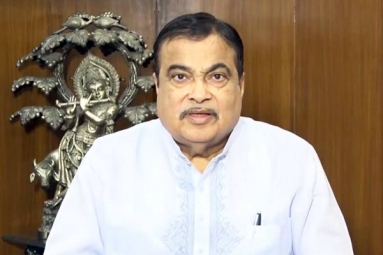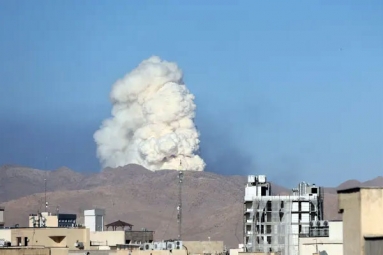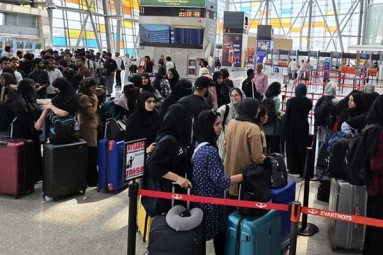
(Image source from: Article 370 isn't about Jammu and Kashmir alone})
Minister of State, Jitendra Singh dropped a clanger on the second day of his job after he commented that the Article 370 of the constitution must be rethought.
For all who are wondering what the big hullabaloo over Article 370 is, know that this is an article in the constitution of India that gives the Kashmiris the right to decide which laws legislated by India’s Parliament will apply to them (outside the areas of defence, foreign affairs, communications).
No sooner he committed the gaffe, a political storm broke out in Kashmir Valley, with Chief Minister Omar Abdullah claiming that either they retain the article or Kashmir will cease to be a part of India.
Now it's up to Prime Minister Narendra Modi to rethink whether Article 370 will assist or impede his plans to pass on more power to the states.
There are two ways of interpreting the Article 370 - one way to look at it is as a peripheral block to the true integration of Jammu & Kashmir with the rest of the country, and secondly, as an imperfect model for passing more power to Jammu & Kashmir.
It won't be wrong to label article 370 as an anachronism in today’s global world, where people and capital are free to pursue their best interests. The law acts as an impediment to Kashmir’s economic and social integration not only with the rest of India, but the world.
There is a third angle to view Article 370 . India is a Union of states. The states are the gateways of social and economic advancement, but, sadly it is the Centre which controls all economic resources and endorses one-size-fits-all legislation for all states. Jammu & Kashmir is the only state which does not have to bear with this, thanks to Article 370.
If Narendra Modi wants to devolve more power to states and establish a partnership between the Centre and State Chief Ministers, then he should review the beneficial aspects of Article 370 and devolve it to all states, even while convincing the Kashmiris to drop the negative aspects of a law that stops India from becoming one.
Article 370 is both a red line and a green line at the same time. It divides India and at the same time binds it by making state borders porous. A diluted Article 370 applicable to all Indian states will make the country a true federation. Then, the states will be better powered to drive India towards growth.
It's high time that a debate started on this. It's time politicians and lawmakers considered to what extent could Article 370 be extended to other states, and how Kashmiris could learn to survive with a more liberal rendering of article 370 certainly. After all, it was never really meant to artificially cut off Kashmir from the rest of the country. Think India think!
AW: Suchorita Choudhury










